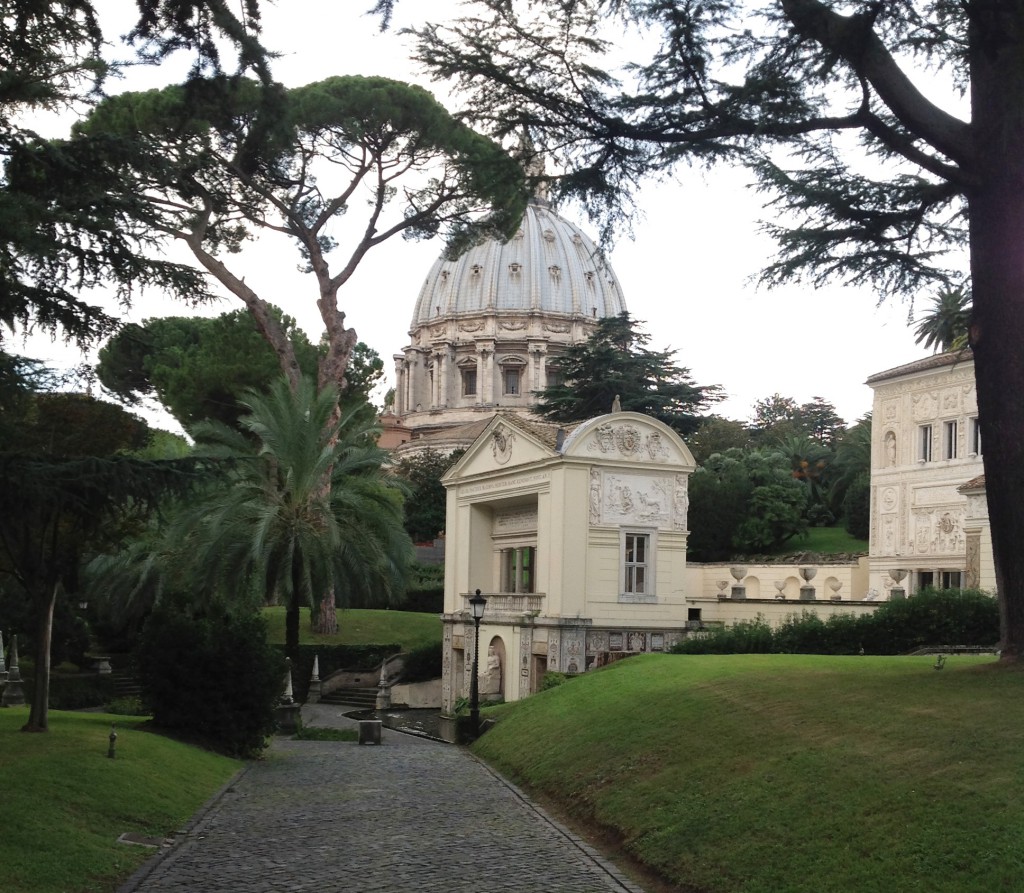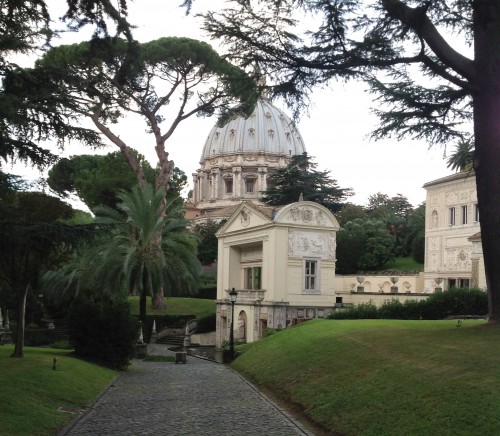15th May 2014
Climate Change and the Holy See


The following is a guest blog by Steve Townsend, Deputy Head of Mission at the British Embassy to the Holy See.
A high-level group of scientists and social scientists gathered together in early May in the Vatican, to discuss “Sustainable Humanity, Sustainable Nature: Our Responsibility”. The aim of the conference was to bring both disciplines together to treat the problem of man’s depredation of the planet in a holistic way, with a particular emphasis on climate change.
The four-day conference (which included several Nobel prize-winners), under the auspices of the Pontifical Academy of Science and the Pontifical Academy for Social Science, was a fascinating blend of “hard” science and social science, and showing how the two interlink. It ranged from specific topics such as the state of the polar ice cap, the oceans and tropical forests, to how society is responding to the current unsustainable growth and how to move away from inequality and the “two worlds”.
It considered how to address the challenges of having a world split into the top 4 billion (who have almost unlimited access to energy) and the bottom 3 billion who have almost none; and how to address the challenges of providing enough food for all, reducing waste, whilst still protecting nature. The conference called for adoption of new universal goals for the sustainable development of the planet, which will require action at the international, regional and local levels, underpinned by a set of ethical values to reduce inequality and eliminate extreme poverty.
The Holy See, through its Pontifical Academies, has the convening power to bring this high-powered multi-disciplinary group together. No countries were represented in the conference (the Academies themselves are independent, but inform the thinking of Pope Francis and the Holy See) so its conclusions were non-partisan.
It has a role to play as an honest broker, as it has no economic interests at stake. Pope Francis has already put care of the planet and respect for nature high on his list of priorities, linked to his concern for the dignity of man, and condemnation of “globalisation of indifference”.
Mitigation and adaptation efforts cannot be not purely scientific solutions. To be effective in the long-term, they must also address how society views itself and its relationship with nature. The melting of the ice caps and the glaciers, the extreme weather events, the acidification of the oceans – these show humanity’s impact.
To ensure a sustainable future, we have to also consider climate change as an ethical problem, which will require a united response across countries, cultures and societies.